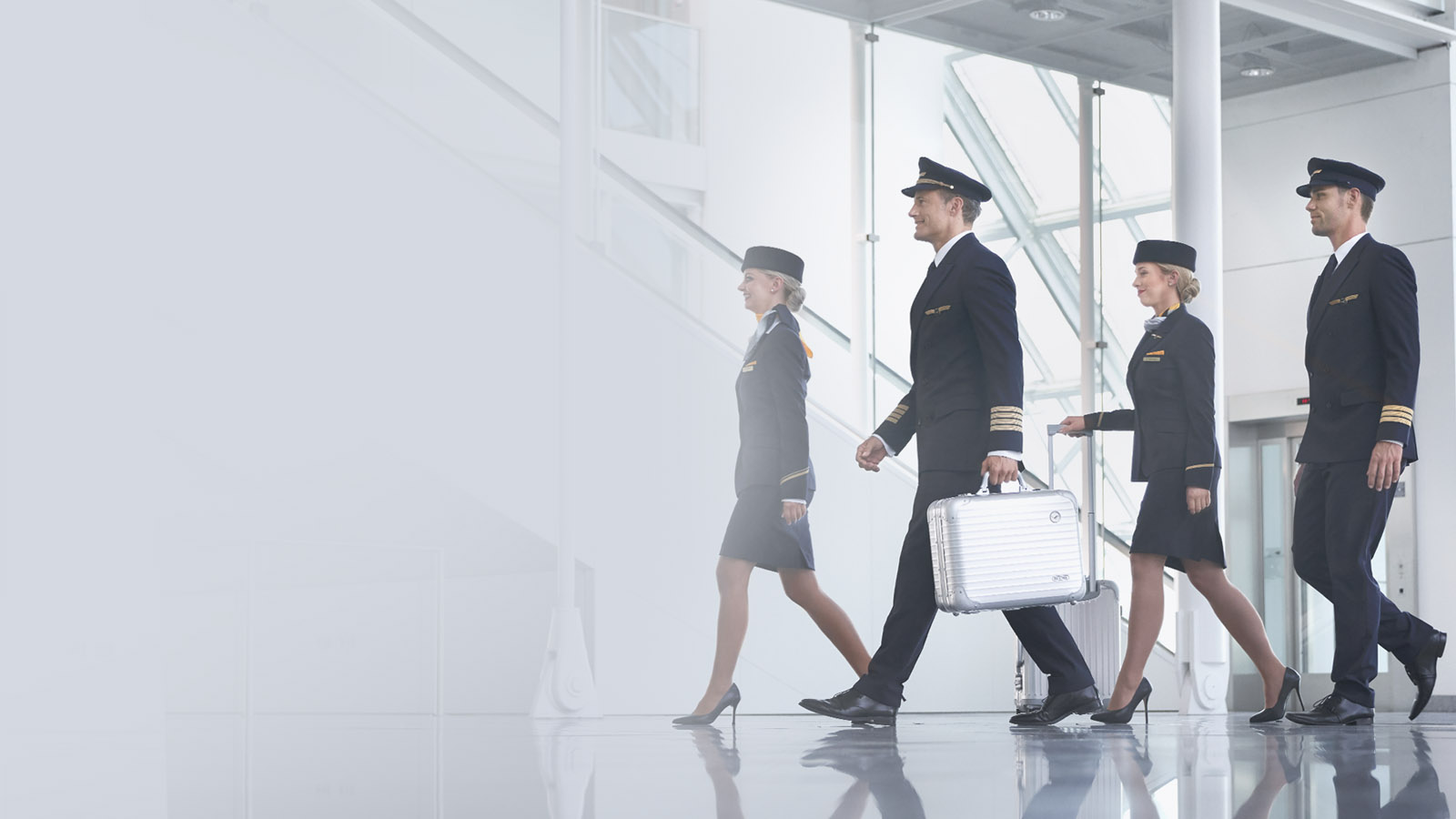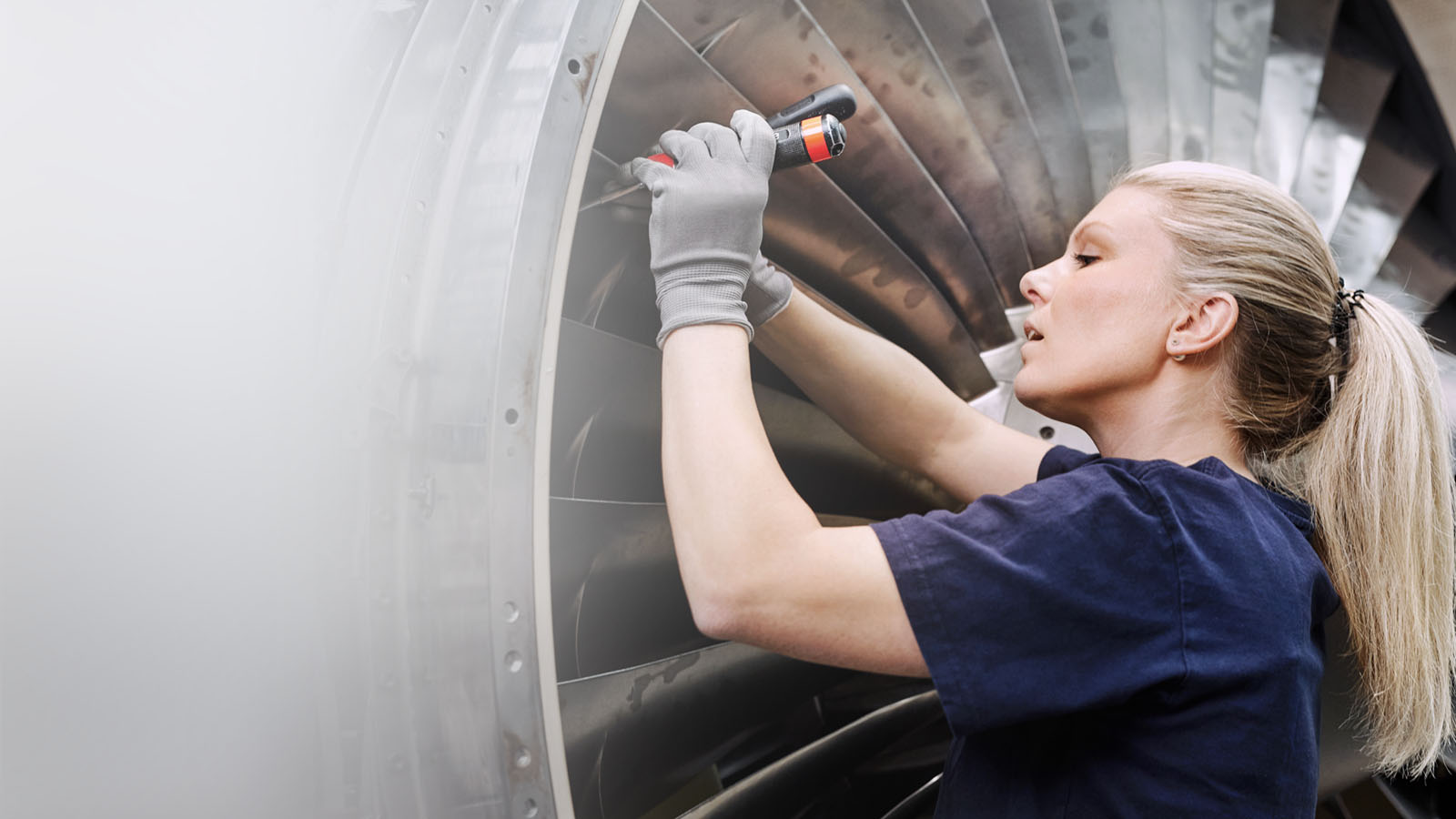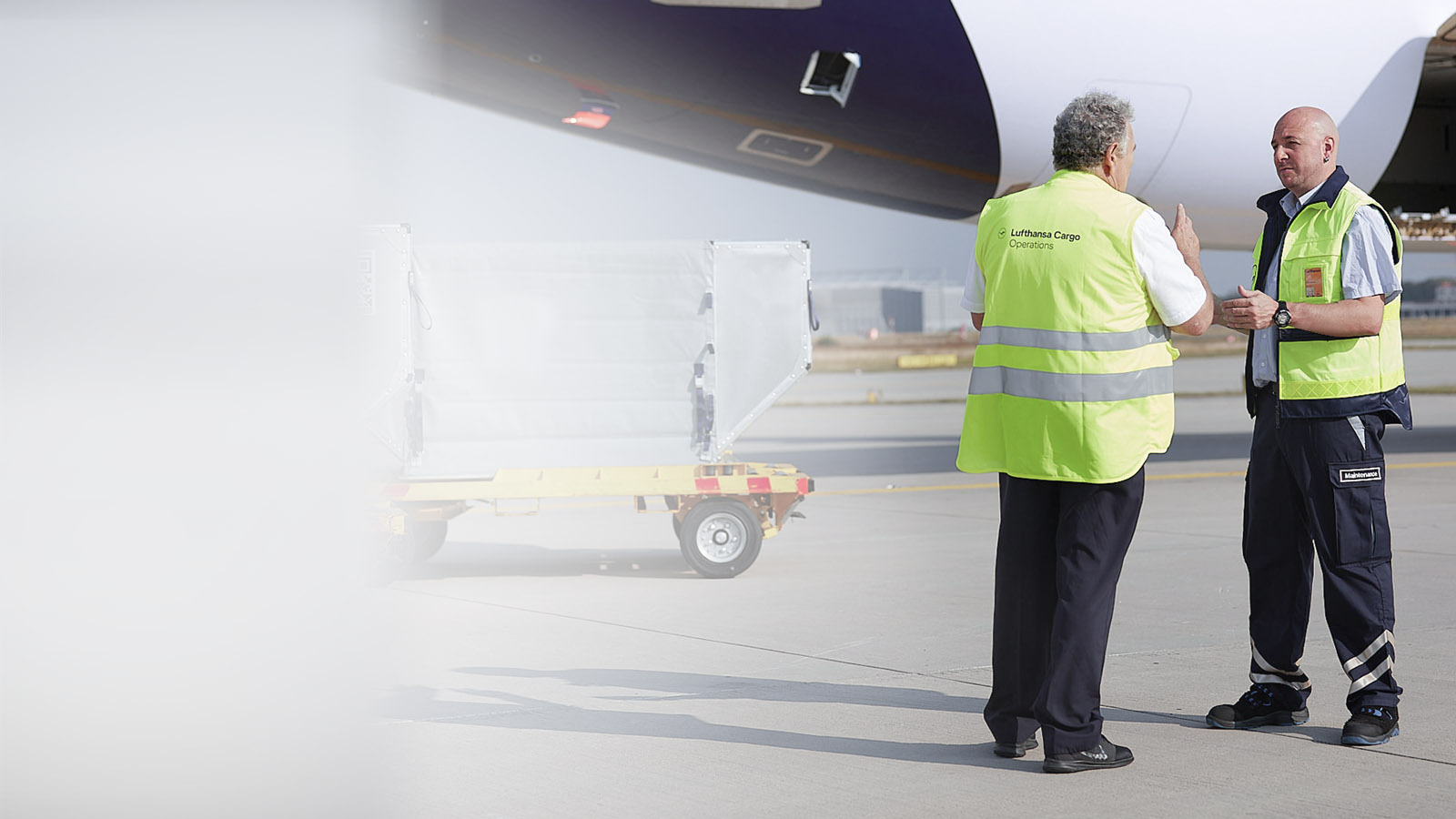We Progress.
To our shareholders



Annual Report 2022
The Lufthansa Group achieved a historic turnaround in just one year.
Carsten Spohr
Chairman of the Executive Board
In 2023, we anticipate a significant improvement in Adjusted EBIT compared to 2022.
Remco Steenbergen
Member of the Executive Board
Finance
Carsten Spohr, Chairman of the Executive Board, on the development of the Lufthansa Group in the financial year 2022
Karl Ludwig Kley, Chairman of the Supervisory Board, on the activities of the Supervisory Board in the 2022 financial year.
Based on a 2021 year-end price of EUR 6.18, the price of the Lufthansa share significantly outperformed the market as a whole in 2022. The closing price at year-end 2022 was EUR 7.77. The share price therefore increased by 26% over the course of the 2022 financial year. The Lufthansa share thus performed significantly better than shares in the main competitors. The MDAX index fell by 28% over the same period.
The Lufthansa Group is a leading European airline group. The Passenger Airlines form the core of the Lufthansa Group, with their comprehensive networks in their home markets of Germany, Austria, Switzerland, Belgium and northern Italy. The passenger airline business is supplemented by Aviation Services that have synergies with the airlines.
The Passenger Airlines segment comprises Lufthansa German Airlines, SWISS, Austrian Airlines and Brussels Airlines – which offer their customers a premium experience, with high-quality products and services – as well as Eurowings, which is positioned as a value carrier with an exclusive focus on point-to-point traffic.
In addition to Lufthansa Cargo AG, the Logistics segment includes the airfreight container management specialist Jettainer group, the time:matters subsidiary, which specialises in particularly urgent consignments, the subsidiary Heyworld, which specialises in tailored solutions for the e-commerce sector, and the investment in the cargo airline AeroLogic.
Lufthansa Technik is the world’s leading independent provider of maintenance, repair and overhaul services for civil commercial aircraft. Lufthansa Technik AG serves more than 800 customers worldwide, including OEMs, aircraft leasing companies, operators of VIP jets and governments, as well as airlines.
The LSG group offers a comprehensive range of products, concepts and services related to in-flight service as well as for other areas, such as retail and food producers. LSG Sky Chefs is a global food specialist with the highest hygiene and quality standards for airlines, the home delivery market and retail.
Key figures 2022
Revenue
in €bn
Adjusted EBIT
in €bn
Adjusted EBIT margin
in %
Adjusted free cash flow
in €bn
During the financial year, there was a significant increase in demand for air travel - both tourist travel and business travel. Accordingly, the capacity offered by the Passenger Airlines has been continuously expanded. Measured in terms of seat kilometres, it was 79% higher in the 2022 financial year than in the previous year and thus reached 72% of the pre-crisis level from 2019. In view of the significant recovery in demand and the limited supply for operational reasons, the Passenger Airlines managed to increase yields significantly.
The Lufthansa Group’s freight business in its Logistics business segment remained positive in the 2022 financial year, driven by continuing strong demand for freight capacities and high yields. In the MRO segment too, the global increase in the use of fleets resulted in increased demand for maintenance and repair services. In the Catering segment, the worldwide recovery of the airline industry boosted the LSG group’s positive course of business.
Due to the growing volume of business activities, traffic revenue for Lufthansa Group airlines in the reporting year rose by 118% year-on-year to EUR 25,846m (previous year: EUR 11,876m). Group revenue of EUR 32,770m was 95% higher than in the previous year (previous year: EUR 16,811m). In the 2022 financial year, the Lufthansa Group was able to achieve a positive Adjusted EBIT again, in the amount of EUR 1,509m (previous year: EUR -1,666m). The Adjusted EBIT margin amounted to 4.6% (previous year: -9.9%). Adjusted free cash flow came to EUR 2,526m (previous year: EUR -1,049m).
The Logistics and MRO segments made particularly positive earnings contributions and both achieved record results in the reporting year. The Passenger Airlines segment significantly reduced its operating loss year-on-year. SWISS and Austrian Airlines recorded another positive operating result. In the Catering segment, the operating result decreased compared to the previous year, primarily due to the absence of positive one-off effects in the previous year.
"Allegris" – Moving into a new era
The airline is introducing a new premium product on longhaul routes under the name "Allegris" in all travel classes (i.e. Economy, Premium Economy, Business and First Class). “Allegris” has been developed exclusively for the Lufthansa Group.
For the very first time in the company's history, the Lufthansa First Class is receiving spacious suites that offer nearly ceiling-high walls that can be closed for privacy. The seat, which is almost one meter wide, can be converted into a large, comfortable bed. All seats and beds are positioned in the direction of flight, without exception.
Now, guests in Lufthansa Business Class can also look forward to their own suite, which offers even more comfort and privacy due to higher walls and sliding doors that completely close. The Lufthansa Business Class of the "Allegris" generation offers six more seating options with the highest level of comfort. Passengers have direct access to the aisle from all Business Class seats.
Carsten Spohr, Chairman of the Executive Board and CEO of Deutsche Lufthansa AG, said: "We want to set new, unprecedented standards for our guests. The largest investment in premium products in our company's history underpins our claim to continue to be the leading Western premium airline in the future."
The new long-haul aircraft such as Boeing 787-9s, Airbus A350s and Boeing 777-9s, will fly to destinations around the world with the new “Allegris” service. Additionally, aircraft already in service with Lufthansa German Airlines, such as the Boeing 747-8, will be converted. The simultaneous improvement of the travel experience in all classes, along with the Lufthansa Group-wide replacement of around 30,000 seats, are unique in the Group's history. With these initiatives, the company is underscoring its clear premium and quality standards.
Lufthansa Cargo is investing in future growth potential in the fast-growing eCommerce segment. The commissioning of two Airbus A321F freighters in the 2022 financial year was in response to the increasing demand for intra-European air freight connections to ensure short delivery times.
The first A321F started operation in March 2022. The second medium-haul freighter entered service in October 2022. The twin-engine Airbus A321F is one of the most versatile aircraft in its class: Being able to carry containers in the main deck, it offers fast loading and unloading and therefore enables very efficient flight operations.
Lufthansa Technik and BASF to start regular use of the fuel-saving surface technology “AeroSHARK”. The film is modeled on the microscopic structure of shark skin and is applied to the aircraft's outer skin. It directly reduces aircraft drag, cuts kerosene consumption and thus CO₂ emissions.
The first passenger aircraft fitted with AeroSHARK, a Boeing 777, took off in October 2022. In December 2022, Lufthansa Technik received the supplemental type certificate from the EASA for the standardised modification of Boeing 777 aircraft. This means the roll-out of the sharkskin technology across part of the fleet can begin at the launch customers Lufthansa Cargo and SWISS. Thus, all twelve long-haul B777-300ER aircraft at SWISS will fly with the fuel-saving surface technology. The same applies to Lufthansa Cargo's current fleet of eleven Boeing 777F freighters.
"For a more sustainable future in aviation, we are consistently driving change in our industry. Our ambitious goal: a neutral CO₂ balance by 2050. Already by 2030, we want to halve our net CO₂ emissions compared to 2019. With the broad rollout of the AeroSHARK surface technology developed by Lufthansa Technik together with BASF, we are once again underlining our innovation leadership. We are the first airline group worldwide to use this new technology," said Christina Foerster, Member of the Lufthansa Group’s Executive Board, responsible for Brand and Sustainability. "By covering more than 20 aircraft with the new sharkskin film, we will reduce the Lufthansa Group's CO₂ footprint by more than 25,000 tons annually."
KEY FIGURES 2022
Absolute CO2 emissions
in million tonnes
specific CO2 emissions
per grammes/passenger-kilometre
Air transport connects people, countries and cultures around the world. Its economic importance is enormous, it drives employment and it ensures the fast and reliable flow of goods. At the same time, it has undesirable effects on climate and the environment. The Lufthansa Group takes its responsibility for effective climate protection seriously - with a clearly defined path toward CO2 neutrality.
The Lufthansa Group has set itself ambitious climate protection targets and aims to achieve a neutral carbon footprint by 2050. By 2030, the aviation group already intends to halve its net carbon emissions relative to its 2019 level. The Lufthansa Group is following a clearly defined reduction path here. This was successfully validated by the Science Based Target initiative (SBTi) in August 2022. The Lufthansa Group was thus the first airline group in Europe with a scientifically based CO₂ reduction target in line with the goals of the Paris Climate Agreement of 2015.
For effective climate protection, the Lufthansa Group is focusing in particular on accelerated fleet modernization, the use of Sustainable Aviation Fuels, the continuous optimization of flight operations, and offers for its private travelers and corporate customers to make a flight or the transport of cargo more sustainable. In addition, the Lufthansa Group has been actively supporting global climate and weather research for many years.
Flying more modern and more efficient aircraft is the most effective instrument for reducing carbon emissions this decade.
Increasing the use of sustainable fuel is critical for a climate-friendly future.
Intelligent route planning, modern approach procedures and the latest technology are instruments that are used every day to reduce carbon emissions.
Expanding and integrating flight-, train- and bus services enables a lower number of shorthaul flights and alternative ways for reaching hubs.
High-quality, certified carbon offset projects that promote climate protection across the world, complemented by CORSIA, the international carbon offsetting instrument for carbon- neutral growth in aviation.
The Passenger Airlines are driving forward with modernizing and unifying their fleets. Older aircraft models are being retired and new, efficient aircraft with lower fuel needs and less carbon emissions are joining the fleet. The investment in modern and particularly fuel-efficient aircraft and engine technologies is currently the most important lever for reducing carbon emissions from flight operations.
In 2022, a total of 24 aircraft went into service with the Lufthansa Group airlines, including Airbus A320neos, A321neos, A350-900s, Boeing 787-9s and Boeing 777Fs, which are powered by modern engines. The A320neo aircraft is one of the latest and most environmentally friendly aircraft in the world and is much quieter than comparable aircraft types. In turn, a total of 27 older aircraft were removed from the Group fleet.
By the end of this decade, around 200 fuel-efficient aircraft are to be delivered to the airlines of the Lufthansa Group. On average, the Group will thus receive a new, more fuel-efficient aircraft every two weeks.
Lufthansa Group Passenger Airlines are set to further expand their sustainability activities. Among other measures, it is now even simpler for customers of Lufthansa German Airlines, SWISS, Austrian Airlines and Brussels Airlines to offset the carbon emissions caused by their flights. When making a booking on the website they will be provided with three specific options for a more climate-friendly flight immediately after selecting their flight ticket.
These airlines’ passengers will first of all have the option of sustainable aviation fuels, which are currently produced using biogenic waste materials. This directly reduces carbon emissions. Another possibility is carbon offsets through high-quality climate protection projects implemented by the non-profit organisation myclimate in Germany and other countries. These projects promote measurable climate protection by reducing CO₂ emissions and improving the quality of life and biodiversity at a local level. A combination of these two options is available as a third possibility.
In February 2023, the Lufthansa Group further expanded its portfolio of sustainable travel offers and became the world's first airline group to offer its own "Green Fares". These enable more sustainable flying with just one click, because the new fares already include offsetting of flight-related CO₂ emissions.
The absolute CO₂ emissions resulting from the combustion of aviation fuel through Lufthansa Group aircraft in 2022 increased by 68.6% to 23.1 million tonnes (previous year: 13.7 million tonnes) due to the rise in demand and the expanded flight offers. CO₂ emissions per tonne-kilometre transported declined by 3.7% to 836.7 grammes (previous year: 869.2 grammes). Specific CO₂ emissions per passenger-kilometre were 11.4% lower than in the previous year at 90.0 grammes (previous year: 101.6 grammes).
The decline in the Group fleet’s specific emissions compared with the previous period was mainly due to an increase in the passenger load factor and changes in the route network that resulted in an increase in average flight length. Longer routes typically create lower specific emissions because the emissions from take-offs and landings, which are higher than in-flight emissions, become less weighty in the calculation as the flight distance increases.
The Lufthansa Group is also reporting on the status of its CO₂ reduction target verified by the SBTi for the first time, which came to 2.2% below base year 2019.
The coronavirus crisis and its impacts have significantly affected the development of the Lufthansa Group. Over the course of the crisis, the Company adjusted its fleet and its workforce in line with the structural changes to the market situation.
With their know-how and wide-ranging talents, the employees of the Lufthansa Group are a key factor in its commercial success. They embody the aspiration of Lufthansa Group Airlines to be a premium brand for passengers, shaping passenger experience. Moreover, they ensure reliable flight operations and efficient administrative processes. This is particularly true of the current period which, following a course of business adversely affected by the crisis, is now characterized by a significant expansion in business activities and operational challenges throughout the aviation system.
To enable our envisaged growth, we have just launched one of the largest recruitment campaigns in the Company’s history and are hiring a large number of new colleagues in product-related and service-oriented fields in particular. We are therefore committed to a fair relationship with one another based on partnership, and to remaining an attractive employer. We attach great importance to offering our employees attractive prospects, since we aim to recruit and retain the best employees.
The Lufthansa Group assumes that demand will continue to rise over the course of the year. In addition to the private travel segment, where demand is forecast to be almost as high as before the crisis, a contribution will come from the further recovery in demand in the business travel segment.
Overall, the Lufthansa Group anticipates that available capacity for the passenger airlines in 2023 will be between 85% and 90% of its pre-crisis level. Capacity will therefore be around 20% higher than last year. The Group assumes that the European air traffic system will be stable enough to support the planned increase in traffic.
A significant year-on-year increase in revenue is forecast for the Lufthansa Group in 2023. This will principally be driven by a further recovery at the Passenger Airlines.
In the 2023 financial year, the Lufthansa Group expects Adjusted EBIT to improve significantly year-on-year, above all thanks to the positive performance forecast for the airlines, and further strong results in the Logistics and MRO segments.
Including the forecast earnings improvement and other improvements in working capital management, Adjusted free cash flow for the Group is therefore projected to be significantly positive, but below the previous year’s figure in 2023.
The Lufthansa Group is a global aviation group with a total of more than 580 subsidiaries and equity investments.
Corporate responsibility, that is to say sustainable and responsible entrepreneurial practice, is an integral part of our corporate strategy. It means that we are committed to creating added value for our customers, employees and investors and to meeting our responsibilities toward the environment and society.
Current news from the Lufthansa Group
Detailed financial information















